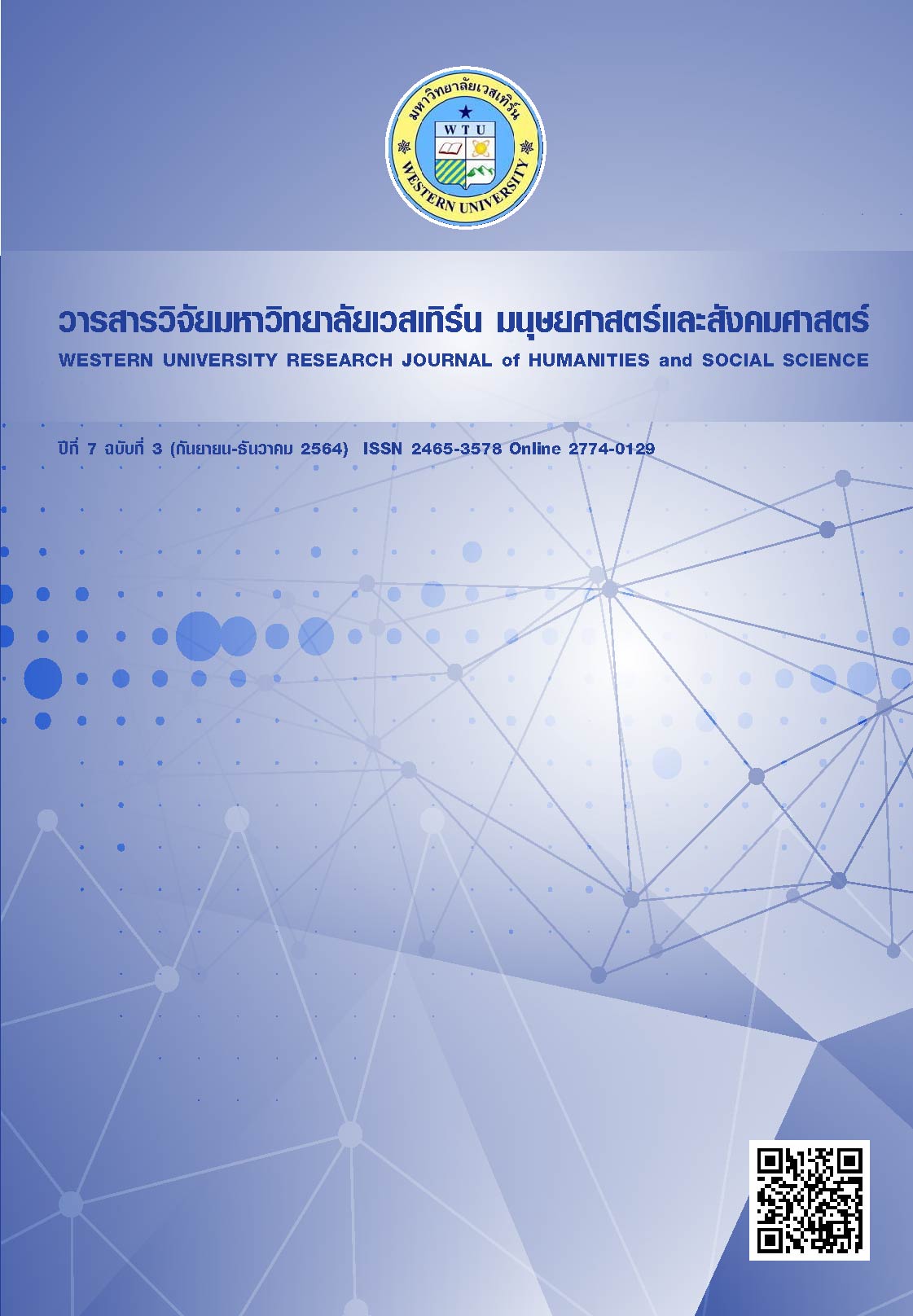จับตามหาอำนาจรัสเซีย: ยุทธศาสตร์นโยบายต่างประเทศ เศรษฐกิจ การค้า ความมั่นคง และวัฒนธรรม
Main Article Content
บทคัดย่อ
รัสเซีย เป็นประเทศหนึ่งในสามมหาอำนาจของโลก ได้กำหนดนโยบายการต่างประเทศ “นโยบายหันหาตะวันออก” เพื่อสร้างความสัมพันธ์กับประเทศในเอเชีย เนื่องจากในอดีตรัสเซียมีบทบาทรองในภูมิภาคเอเชีย โดยมองว่ายุโรปเป็นแหล่งผลประโยชน์สำคัญ อาจด้วยความเจริญเติบโตของประเทศในภูมิภาคเอเชีย ทำให้นโยบายต่างประเทศรัสเซียในปี ค.ศ. 2000 และ 2016 โดย ประธานาธิบดี วลาดิมีร์ ปูติน เน้นเป้าหมายผลประโยชน์แห่งชาติรัสเซีย เพื่อให้รัสเซียคืนสู่ความเป็นมหาอำนาจโลกอีกครั้งแห่งศตวรรษที่ 21 ด้วยการสร้างความแข็งแกร่งทั้งด้านเศรษฐกิจ การเมือง การค้าระหว่างประเทศ ให้ประสบความสำเร็จกับมิตรประเทศในภูมิภาคเอเชีย พร้อมกับการก้าวกระโดดของประเทศจีนและประเทศในเอเชียตะวันออก อย่างไรก็ดี ประชาคมอาเซียนอาจต้องปรับเปลี่ยนบทบาทเพื่อให้รัสเซียหันมาใส่ใจและเข้ามามีความสัมพันธ์ทั้งกับภูมิภาคเอเชียตะวันออกและเอเชียตะวันออกเฉียงใต้มากขึ้น ดังที่ประธานาธิบดี วลาดิมีร์ ปูติน ที่พยายามส่งเสริมความเป็นหุ้นส่วนทางยุทธศาสตร์ระหว่างจีน-รัสเซีย ควบคู่กับความพยายามใกล้ชิดอาเซียนมากขึ้น อย่างไรก็ตาม ความพยายามสร้างความสัมพันธ์รัสเซีย-อาเซียน ยังไม่อาจเทียบเท่ากับความสัมพันธ์ระหว่างจีน-อาเซียน และสหรัฐอเมริกา-อาเซียนได้ เนื่องจากพบว่ามีอุปสรรคสำคัญคือ ระยะทางที่ห่างไกล ความรู้ความเข้าใจ และกิจกรรมความสัมพันธ์ที่มียังน้อยอยู่ ดังนั้นในสถานการณ์นี้ จึงเป็นโอกาสดีที่ประเทศไทยต้องเร่งส่งเสริมการเป็นหุ้นส่วนและความสัมพันธ์ระหว่างไทย-รัสเซียให้กระชับยิ่งขึ้น โดยเฉพาะอย่างยิ่งบทบาทของไทยในการถ่วงดุลอำนาจในภูมิภาคอาเซียน ทั้งจีนและสหรัฐอเมริกาที่เป็นมหาอำนาจและมีบทบาทสำคัญในภูมิภาคอาเซียน
Article Details
เอกสารอ้างอิง
Dyner, Anna Maria and Rodkiewicz, Witold. (2017). The Russian Federation’s New Foreign Policy Concept and Threatening a Pivot towards Asia: A New Foreign Policy Concept of the Russian Federation. Retrieved January 30, 2019, from http://www.css.ethz.ch/en/services/digital-library/articles/ article.html/7f574d71-2f0e-4eb8-a865-8baea6f8a020/pdf
Fukuyama, Francis. (1992). The End of History and the last Man. New York: The Free Press.
Gazeta, Rossiiskaya. (1997). Russian National Security Blueprint. Retrieved January 30, 2019, from https://fas.org/nuke/guide/russia/doctrine/blueprint.html
Holsti, Kalevi J. (1995). International Politics: A Framework for Analysis (7th ed.). Englewood Cliffs, N.J.: Prentice Hall.
Keohane; Robert O. and Nye, Joseph S. (1977). Power and interdependence: world politics in transition. Boston: Little, Brown.
Litsareva, Elena Yu. (2015). “Pivot” Toward Asia: The Strategic Direction of Russia’s Foreign Policy Concept in a Changing Balance of Powers. Journal of Advocacy, Research and Education, 2(1): 46-53.
Luttwak, Edward N. (1990). From Geopolitics to Geo-Economics: Logic of Conflict, Grammar of Commerce. The National Interest, 20(summer): 17-23.
Luttwak, Edward N. (1993). The Endangered American Dream; How to stop the United States from becoming a third world country and how to win the geo-economic struggle for industrial supremacy. New York: Simon & Schudter.
Porter, Michael E. (1990). The competitive advantage of nations. Harvard Business Review, (March-April): 71-91.
Rajakhun, Suriya. (2010). BRIC มหาอำนาจใหม่ที่ต้องติดตาม. Retrieved November 20, 2018, from http://suriya-rajakhun.blogspot.com/2010/11/bric.html
Reynolds, Philip Alan. (1994). An Introduction to International Relations (3rd ed.). London;
New York: Longman.
Richardson, Paul B. (2018). At the Edge of the Nation: The Southern Kurils and the Search for Russia’s National Identity. Honolulu: University of Hawaii Press.
Shirk Paul R. (1969). Thai-Soviet Relations. Asian Survey, 9(9): 682-693.
The Ministry of Foreign Affairs of the Russian Federation. (2016). The Foreign Policy Concept of the Russian Federation. Approved by President of the Russian Federation Vladimir Putin. on November 30, 2016. Retrieved December 30, 2018, from https://www.rusemb.org.uk/rp_insight/
Yan, Xuetong. (2018). The Age of Uneasy Peace: Chinese Power in a Divided World. Retrieved March 10, 2019, from https://www.foreignaffairs.com/articles/china/2018-12-11/age-uneasy-peace


